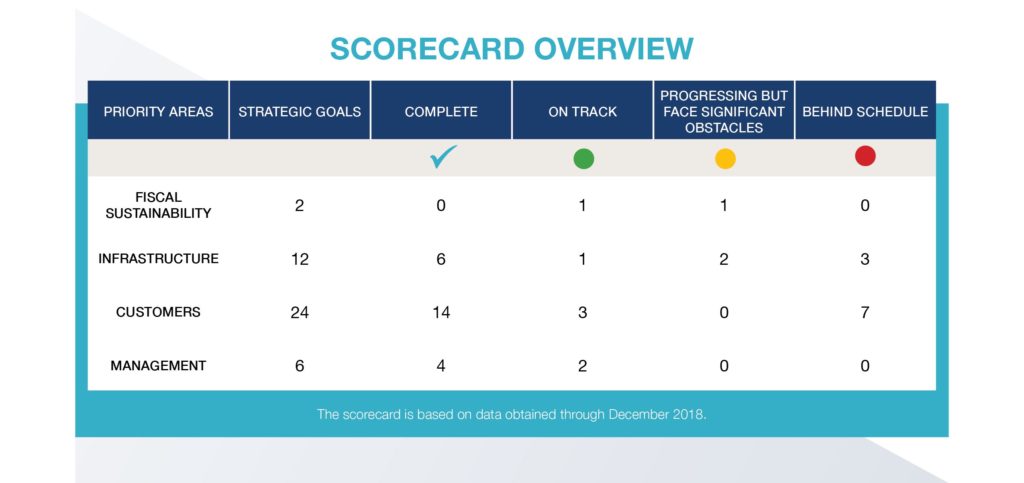How well has the MBTA met the goals of its Strategic Plan?
March 11, 2019
Last week, the Greater Boston Chamber of Commerce (GBCC), Conservation Law Foundation (CLF), and the MBTA Advisory Board published their first annual Accountability Report to assess the MBTA’s progress toward the goals set in the MBTA Strategic Plan, which was developed by the MBTA Fiscal and Management Control Board (FMCB) in 2017.
The 2019 Accountability Report shows that the MBTA is making progress in accomplishing some of its goals, such as taking steps to stabilize the operating budget, but it is also expecting significant challenges in the year ahead.
The FMCB itself promised that 2019 would be a “turning-point” year when customers will see results from the first three years of work towards goals identified in the Strategic Plan. This year, the MBTA will shift from planning to project implementation, and there is much at stake. Several projects, such as doubling its annual capital investment, implementing expanded accessibility, and addressing climate vulnerability, face significant obstacles and are at risk of falling behind schedule.

Some key goals examined in the report include:
Goals that are complete
Goals that are on track
Goals that are progressing but face significant obstacles
Goals that are behind schedule
The GBCC, CLF and MBTA Advisory Board will publish the next Accountability Report in the first quarter of 2020. The report will focus on major initiatives, including achieving stability in the operating budget and executing the $8 billion, five-year capital plan. The three organizations will hold the MBTA accountable to its goals by examining progress on an updated MBTA Strategic Plan, a capital planning review, new Red and Orange Line car deliveries, the Better Bus Project, and a future governance structure following the FMCB termination in 2020.